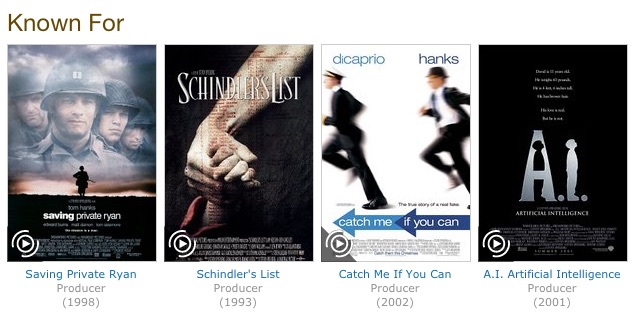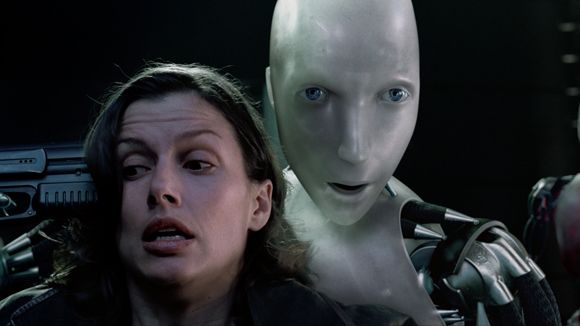Technology posts
Tuesday June 30, 2020
Leaving Facebook VII
“The frenzied push-pull [RE: Trump threatening to send the military to the Minnesota protests in late May] was just the latest incident in a five-year struggle by Facebook to accommodate the boundary-busting ways of Trump. The president has not changed his rhetoric since he was a candidate, but the company has continually altered its policies and its products in ways certain to outlast his presidency.
”Facebook has constrained its efforts against false and misleading news, adopted a policy explicitly allowing politicians to lie, and even altered its news feed algorithm to neutralize claims that it was biased against conservative publishers, according to more than a dozen former and current employees and previously unreported documents obtained by The Washington Post. One of the documents shows it began as far back as 2015, when as a candidate Trump posted a video calling for a ban of Muslims entering the United States. Facebook's executives declined to remove it, setting in motion an exception for political discourse.
“The concessions to Trump have led to a transformation of the world's information battlefield. They paved the way for a growing list of digitally savvy politicians to repeatedly push out misinformation and incendiary political language to billions of people. It has complicated the public understanding of major events such as the pandemic and the protest movement, as well as contributed to polarization.
”And as Trump grew in power, the fear of his wrath pushed Facebook into more deferential behavior toward its growing number of right-leaning users, tilting the balance of news people see on the network, according to the current and former employees.“
— ”Zuckerberg once wanted to sanction Trump. Then Facebook wrote rules that accommodated him," in The Washington Post
Sunday June 07, 2020
Leaving Facebook IV
When I was clearing out my Facebook account last fall, and I deleted all of my photos, this was what was left on the page:

You see it? That ghostly image under “Create Album” in the upper left? I saw it right away. Maybe because I see it in my nightmares. Maybe because it's been our national nightmare three years running. Apparently it's also the ghost in the Facebook machine. It's so weird and unnecessary. It's not like any of the albums had anything to do with him. So why was it there?
And if it's not Trump, who or what is it?
I searched online but haven't seen anyone else commenting on this phenomenon. Maybe because no one else deleted all their shit before deleting their account? FB recently changed its design so it's probably not there anymore. But why was it there to begin with? A final “fuck you” from Facebook before I headed out the door? Part of its idiot algorithms? “Hey, you keep writing ”Yankees“ [suck], so why not buy some Yankees memorabilia?” “Hey, you keep posting about Trump, so we‘ll leave you with this ghostly image under your photos. Oh, don’t bother thanking us. We enjoy doing it.”
I really do wonder about Zuckerberg sometimes. Winklevoss twins, we hardly knew ye.
Monday June 01, 2020
Leaving Facebook III
From last week's Wall Street's Journal article, “Facebook Knows It Encourages Division. Top Executives Nixed Solutions: The social-media giant internally studied how it polarizes users, then largely shelved the research”:
The high number of extremist groups was concerning, the presentation says. Worse was Facebook's realization that its algorithms were responsible for their growth. The 2016 presentation states that “64% of all extremist group joins are dude to our recommendation tools” and that most of the activity came from the platform's “Groupss You Should Join” and “Discover” algorithms: “Our recommendation systems grow the problem.”
No shit. Sadly, the man in charge didn't give a shit:
The debate got kicked up to Mr. Zuckerberg, who heard out both sides in a short meeting, said people briefed on it. His response: Do it, but cut the weighting by 80%. Mr. Zuckerberg also signaled he was losing interesting in the effort to recalibrate the platform in the name of social good, they said, asking that they not bring him something like that again.
Message to Mark:

Wednesday May 27, 2020
Leaving Facebook II
Follow-up to yesterday's post about deleting my Facebook account: They don't make it easy.
I'm not talking about what I went through—deleting everying in the account before actually deleting the account. I'm talking about the latter: the hoops FB makes you jump through.
(Quick aside: They also seemed to send me more friend suggestions the more friends I deleted from my account. I was down to six total friends, and I'd be off the site for, say, two months, and come back to a huge red number (interactions or whatever it was) in the upper right, and they were all friends suggestions from FB's algorithm. And they were all wrong.)
OK, so after deleting everything in the account, I googled to see how you actually deleted the account, then navigate to that spot on the platform. First, FB gave me a choice:
- Deactivate Account
- Permanently Delete Account
The latter came with a big, redundant warning about what this meant: “Deleting your account is permanent.” I clicked that option and then clicked: CONTINUE TO ACCOUNT DELETION. Done and done.
Except the next page reminded me that deleting would mean losing Messenger. Wouldn't I rather simply Deactivate? So as not to lose Messenger? Since it's so great? FB also gave me the option to download my informaton. According to FB, I still had 140 photos and 42 posts somewhere in my account. I was vaguely curious—I thought I'd scrubbed every corner—but I said “screw it” and pressed on: DELETE ACCOUNT. Done.
Except this time I got a pop-up: password. Right. CONTINUE.
Another pop-up. Yet another confirmation message. Yet another “Are you sure?” I clicked: DELETE ACCOUNT.
And that was the click that finally worked. Sort of. FB was giving me 30 days to think it over.

Nothing has made me happier to leave Facebook than the leaving of it.
Wednesday May 13, 2020
More IMDb/Amazon Fails
“The Millonaire” is a 1931 drama/comedy starring George Arliss, who was taking Hollywood by storm after a hugely successful career on the stage. He played, for example, the title role of “Alexander Hamilton” in the 1910s on Broadway (100 years before LMM's musical version) and reprised it in the movies in the ‘30s. He was often promoted as “America’s First Actor.” But I'm interested in the movie less for him than for a small supporting role played by James Cagney. I‘ve seen every early Cagney (1930-34) but that one. Problem? “The Millionaire” is a tough get. Even Scarecrow Video in Seattle, which has everything, doesn’t have it.
I forget why but last week I was on the movie's IMDb page and saw this:

Wait. Watch on Prime Video? Wow. Now only could I finally see the movie but I could see it for free. You can't believe how excited I got. Until I clicked on the link. This is where I was taken:

Missed it by that much.
Via Twitter, I tried to alert both IMDb and Prime (both owned by Amazon) to their mistake but so far nothing's been fixed. It's the same old glitch.
That said, if anyone knows where I can watch a version of the Arliss “Millionaire,” please give a shout.
Thursday May 07, 2020
Amazon's Quality Control Streaming Problem

A close-up from “Great Guy,” a public domain movie streaming on Amazon.
The other night I bought the streaming version of the 1931 James Cagney movie “Blonde Crazy” from Amazon.com and then held my breath. Film quality from movies on Amazon, particularly early Hollywood pictures, is problematic. Many have been copied and recopied so often they‘re blurry and sludgy—unwatchable on a big TV screen and sometimes even on a computer. With “Big Business Girl,” for example, I had to shrink the browser down to 1/4 size to make it palatable.
That one was a rental. So it goes. But nobody wants to own such a low-quality thing. That’s why I held my breath.
In the last year I‘ve bought about six or so digital movies from Amazon—“The Great Buster,” “Pain and Glory,” some early Cagneys—and they were all fine. “Blonde Crazy” wasn’t. Soft and blurry—like watching a 2005 upload on YouTube. You felt dumber just watching it. I certainly felt dumber paying 11 bucks for it.
Plus side: I was able to get a refund. There's a feedback option on each page, and I clicked it, and went through the hoops until I was able to message with an actual person—or a very responsive bot—and he/she/it was able to refund my order. If not my time. Or my temporary spike in blood pressure.
I made some suggestions, too, which he/she/it promised to kick upstairs. We‘ll see. Here they are. I think they’re good ideas for both Amazon and its customers:
- Before any purchase or rental, let customers see a 30-to-60 second clip so we can judge the film quality.
- Include the film quality on the movie's page—as with used books on Amazon's site.
- Allow rent-to-own. If you stream a rental, then want to buy it, Amazon should knock off the rental price you just paid from the purchase price. Apple already does this with iTunes. Buy a single, then buy the whole album, it's minus the single price.
I wouldn't mind seeing Amazon enact all three of these reforms, to be honest, but particularly 1) and 3). Right now, despite the refund, I'm wary of renting/buying old movies from them in the future. I assume that's not how they want their customers to feel.
Saturday January 18, 2020
‘Or Something’
“Sure, that might lead to a dystopian future or something, but...”
— David Scalzo, an early investor in Clearview, which has created a facial-recognition app that it's shared with more than 600 law-enforcement agencies, according to Kashmir Hill's article, “The Secretive Company That Might End Privacy as We Know It,” in The New York Times.
According to Hill, “The tool could identify activists at a protest or an attractive stranger on the subway, revealing not just their names but where they lived, what they did and whom they knew.” According to Hill, too, Clearview monitored her as she did research for the article. “At my request,” she writes, “a number of police officers had run my photo through the Clearview app. They soon received phone calls from company representatives asking if they were talking to the media — a sign that Clearview has the ability and, in this case, the appetite to monitor whom law enforcement is searching for.”
Friday December 13, 2019
Talkin' New TV Motion-Smoothing Blues
We just bought a new TV—our first since ... 2008? The previous one, a Sony, we got just before smart TVs became a thing. It was one of the last of the dumb TVs. To access the menu most TVs now have (Netflix, Amazon Prime, Hulu, YouTube, etc.) we had to go through our Blu-Ray player. I guess that was getting old. No, that wasn't it. The streaming was touch-and-go. It worked fine for a month and then not. It would get chunky, or blurry, sometimes on Prime, more often on Netflix, most often on HBO (via Prime). That's what was getting old. And it just seemed time.
So we went from a 40“ Sony to a 65” Samsung. Good god, right? It was so big it wouldn't fit in our car so we had it delivered. Think about that: Our TV is too big for our car. Anyway, it finally arrived yesterday—from Sacramento rather than Sodo Seattle.
I will say this: They made it easy. The directions for the most part were simple and user-friendly. It was easy to take this behemoth out of the box, to screw on the stand, to set up. The toughest thing, oddly, was removing the back of the remote to put in the batteries. Patricia and I worked on that for like a half hour. This video is what helped us finally solve the problem. Thanks, man.
We were excited. New TV! Great, right? Then we began to watch.
The first thing we watched was the second episode of the third season of David Simon's “The Deuce.” It included the filming of a few porn scenes, which were fairly explicit, and now beaming in 65“ super-crisp format into our neighbors' windows. Sllightly abashed, we closed the blinds. But that wasn't the real problem.
The real problem was that while it looked good, it looked ... odd. Cheap. Like a 1980s video. Like a soap opera.
”Ech,“ I said.
”Maybe it's just this show,“ Patricia said. ”You know, because it's ‘80 porno and all.“
”Maybe,“ I said.
So we tried a Blu-Ray we’ve watched often: ”The Insider.“ Same fucking thing. It was distracting. All that work, all that money, for something that looks this cheap?
This morning, when I googled it, I found out that cheapness is something called ”the soap opera effect." It's motion smoothing. Here's an article on it. Basically the tech has moved beyond what we‘re used to, or what has been (24 frames per second), and so to ensure old software keeps up with the new hardware they’ve added this feature. For them, it's a feature. That's why the default is auto rather than off. The nice thing is you can turn it off. Which I did. Immediately. Not all new tech is good tech, boys. If tech is progressing to the point where it makes our products look cheap, maybe it shouldn't be the default.
I'm curious what internal discussions were like at Sony, Samsung, et al., over making motion smoothing the default. Or did they just go along with it because everyone in the industry was going along with it?
Yes, it's a first-world problem. And yes, at least we can turn it off. For now. But I fear the next iteration. It's Fear #1,682 on the list.
**
ADDENDUM: I just spoke with a colleague, Ross, and he's glad I'm on his side against motion smoothing. As are, he told me, most directors, who can't stand what TV/tech companies are doing to their art form. At the same time, he let me know this issue has been around for six years. So, yes, a bit late to the battle, but ready for the fight. Because god. Ech.
Wednesday January 16, 2019
Comments, Allez-Vous
Longtime readers may notice there is no more comments field on EL.com. Been thinking about removing this for a while, since it was a bit clunky-looking and most people know how to contact me anyway. If you don‘t, check out the bio page or the Twitter feed.
The deathknell came from a spammer, stephane3constant, who, on Jan. 11, placed 14 comments on 14 posts that were all basically ads. Each of these had to be removed individually, which is a pain, particularly when you add in remembering exactly how to do it. That always takes me a while. So I finally said, “Enough. Tim, let’s just remove it.” Now gone.
Have to admit: I feel sorry for anyone who felt placing spam on my site would help them in any way.
Sunday September 02, 2018
Unsubscription
A poem for our age:
Here I sit
Unsubscribing
Tried to quit
They keep arriving
Orbitz is one of my latest attempts. When I did, I got this response:

That was August 8. They keep arriving.
Sunday June 24, 2018
Antisocial Network
“Facebook has filed thousands of patent applications since it went public in 2012. One of them describes using forward-facing cameras to analyze your expressions and detect whether you‘re bored or surprised by what you see on your feed. Another contemplates using your phone’s microphone to determine which TV show you‘re watching. Others imagine systems to guess whether you’re getting married soon, predict your socioeconomic status and track how much you‘re sleeping.
”A review of hundreds of Facebook’s patent applications reveals that the company has considered tracking almost every aspect of its users' lives: where you are, who you spend time with, whether you‘re in a romantic relationship, which brands and politicians you’re talking about. The company has even attempted to patent a method for predicting when your friends will die.“
— the lede to Sahil Chinoy's piece, “What 7 Creepy Patents Reveal About Facebook,” in today‘s New York Times.
What are the 7 Creepy Patents? They involve:
- Predicting whether you’re in a romantic relationship (Don't we already tell them this?)
- Using your posts and messages to infer personality traits—and thus ads
- Using posts, IMs, and credit card transactions to predict major life events
- Gving your camera a unique signature to further figure out your relationships (who else uploads your photos, etc.)
- Using phone mic to guess TV-watching habits. And more?
- Using phone to track weekly routine
- Using phone to track relationships
Yeah, they're not making me feel safer. Then again, who is?
Monday June 18, 2018
Oh, THAT Robert Redford
IMDb needs to fix its algorithms. Seriously. There's tons of them that just make you do a double-take. I came across this one this morning:

“Who's Robert Redford again?”
“You know. He was the producer of ‘The Company You Keep,’ starring Shia LeBeouf.”
“Oh, right.”
Saturday May 13, 2017
IMDb Needs to Fix Its ‘Known For’ Algorithm
I know. Not exactly high on the list of things the world needs to fix. Even so.
As you probably know, on each of its pages for any movie/TV person (star, cameraman, casting, set decoration, best boy, doesn't matter), IMDb.com lists four movies he/she is “known for.” Robert Redford, for example, is known for, in this order, “The Sting,” “Butch Cassidy & The Sundance Kid,” “All the President's Men,” and “Out of Africa.” Seems about right. For Audrey Hepburn, it's “Breakfast at Tiffany‘s,” “My Fair Lady,” “Roman Holiday” and “Sabrina.” Again: Yep.
But there are a few bugs in the system. Here’s Steven Spielberg:

Right. Not “Jaws,” “Raiders of the Lost Ark,” “E.T.” or “Jurassic Park.” Not “Lincoln.”
I get the first two. But “Catch Me If You Can” and “A.I.”? Really?
Then you notice the role they‘ve assigned to him for each of these movies: producer. And it all begins to make sense.
According to IMDb, its algorithm assigns a “weight” to every credit in someone’s CV. These include, among others:
- “The job performed on the title (a credit as director will have more weight than a credit as production assistant).”
- “The frequency of credits for a particular job in the context of the person's filmography (writing credits may have more weight for someone who is more frequently credited as a writer than as a producer)”
It's this second that's the problem with Spielberg. He currently has 162 credits as a producer. He has 56 as a director. Apparently this means that IMDb, the most popular repository of movie information we have, sees Spielberg, the most popular movie director of all time, as primarily a producer. And since Spielberg didn't become a producer until the late ‘70s and early ’80s, that eliminates movies such as “Jaws” and “Raiders” from “Known For” contention. (Oddly, he was a producer for “E.T.” so I'm not sure why “Catch Me” and “A.I.” trump that.)
The same is true on IMDb with other great directors who produce. In this universe, Martin Scorsese is “known for” being: 1) producer of “The Wolf of Wall Street,” 2) director of “Goodfellas,” 3) producer of “Shutter Island” and 4) director of “The Departed.” “Taxi Driver” and “Raging Bull”? Whatevs.
Actors who produce? Tom Hanks is primarily known for ... “The Da Vinci Code.” Drew Barrymore is primarily known for ... “Donnie Darko.”
Algorithms are tough, and IMDb's gets a lot right. But there are still a few bugs in the system.
Sunday May 01, 2016
Quote of the Day
“In the United States, most banks take special precautions with their Swift computers, building multiple firewalls to isolate the system from the bank's other networks and keeping the machines physically isolated in a separate locked room.
”But elsewhere, some banks take far fewer precautions. ... The central bank in Bangladesh, by some accounts, employed fewer protections against cyberattacks than many other large banks. The bank, for example, used $10 routers and no firewalls, according to news reports.“
-- from ”Hackers' $81 Million Sneak Attack on World Banking" on the front page of the New York Times.
Saturday May 23, 2015
You, Robot
I've been asking this question of friend and strangers for a while now: Which jobs do you think won't get digitized away in 10, 20, 30 years?
According to Barbara Ehrenreich in her review of two books, “Rise of the Robots” by Martin Ford and “Shadow Work” by Craig Lambert, the answer is: Not many. She skips over the ones we've already lost (printer, photographer) to concentrate on the ones we're beginning to lose (secretaries, travel agents, customer service in general). She quotes an expert predicting that in 10 years, “90 percent of articles will be computer generated.” She writes about college grads floundering and the longterm unemployed giving up, and why that is:
All of this has happened by choice, though not the choice of the average citizen and worker. In the wake of the recession, Ford writes, many companies decided that “ever-advancing information technology” allows them to operate successfully without rehiring the people they had laid off. And there should be no doubt that technology is advancing in the direction of full unemployment. Ford quotes the co-founder of a start-up dedicated to the automation of gourmet hamburger production: “Our device isn't meant to make employees more efficient. It's meant to completely obviate them.”
Near the end of the piece, Ehrenreich, author of “Nickel and Dimed,” gets apocalyptic:
If middle-class jobs keep disappearing as wealth piles up at the top, Martin Ford predicts, economic mobility will 'become nonexistent': 'The plutocracy would shut itself away in gated communities or in elite cities, perhaps guarded by autonomous military robots and drones.' We have seen this movie; in fact, in one form or another — from 'Elysium' to 'The Hunger Games' — we've been seeing it again and again.
As I wrote five years ago, in a review of a different movie, we're all cutters now. We just don't seem to know it. Or how bad it'll get.

Step away from the job or the girl gets it.
All previous entries
Baseball's Active Leaders, 2023
What Trump Said When About COVID
Recent Reviews
Everything Everywhere All at Once (2022)
Black Panther: Wakanda Forever (2022)
Doctor Strange in the Multiverse of Madness (2022)
Spider-Man: No Way Home (2021)
The Cagneys
A Midsummer Night's Dream (1935)
Something to Sing About (1937)
Angels with Dirty Faces (1938)
A Lion Is In the Streets (1953)
Man of a Thousand Faces (1957)
Never Steal Anything Small (1959)
Shake Hands With the Devil (1959)







